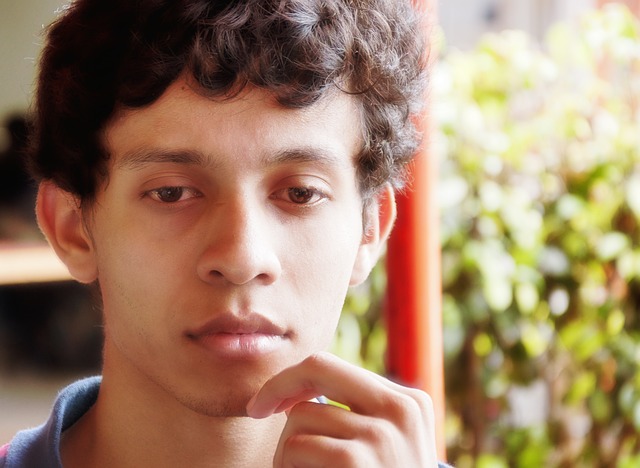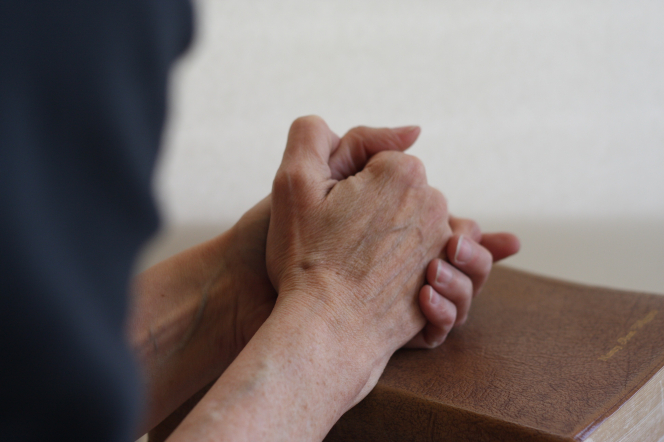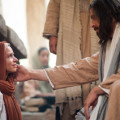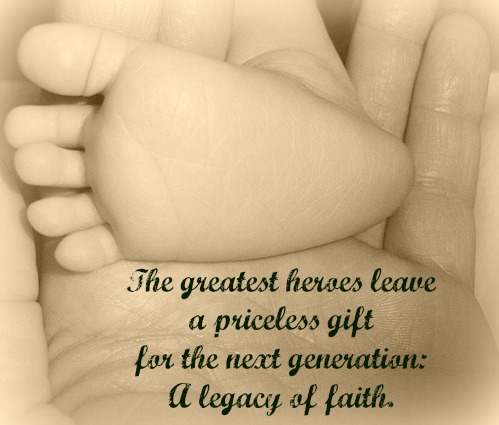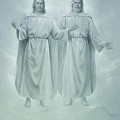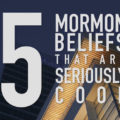This articlePutting Doubt into Perspective was originally published in Meridian Magazine.
An unavoidable part of life is that we routinely experience doubt, confusion and uncertainty. These feelings are always troubling, but they can be especially disconcerting when they relate to our feelings about God. During those times, I like to think about two different episodes in the scriptures.
The first event involved Christ and a great number of his followers. In the sixth chapter of the Gospel of John, Christ gave what has become known as “The Bread of Life Sermon” in which he stated that He is the Bread of Life and that unless we eat of his flesh and drink his blood, we cannot enter the Kingdom of Heaven. Most of those who were listening were so upset by the notion that we must eat the flesh and blood of Christ to go to Heaven that they stopped listening then and there and left the Savior.
Only his most loyal disciples, the Twelve, remained. Christ did not run after those who left to apologize for offending them, or to try and explain that it was merely a metaphor. He merely turned to the Twelve and asked, “Will ye also go away?” (John 6:67.) It was Peter who replied. He did not say, “Of course we’re going to stay. We understand that you are only speaking metaphorically.” Instead, he said “to whom shall we go? thou hast the words of eternal life” (John 6: 68). Peter and the Twelve may have experienced the same kinds of doubts, confusion and uncertainty that were felt by those who left, but the Twelve set those feelings aside and stood by the Savior. Rather than act upon whatever doubts they may have had, they acted upon their faith. And because of this decision to act with faith, and continue following the Savior, their faith was eventually transformed into knowledge.
The second story involves a great miracle and a man of imperfect faith. The anguished man had sought a blessing from the disciples of Christ for his son, who had been afflicted with convulsions since he was a child. When the disciples were unable to heal the son, the scribes, perhaps seeing an opportunity to embarrass the disciples of Christ, started arguing with the disciples. At this point, Christ entered the scene and asked what the argument was about. The man stepped forward and explained how he had brought his son to the disciples to be healed, but they had failed. Christ told the man that “all things are possible to him that believeth” (Mark 9:23). Of course, the man had just witnessed how Christ’s disciples had fallen short and were now being challenged by critics of the Church. The conclusion the man might have drawn was that not even the disciples had sufficient faith. Under these circumstances, it would be understandable if the man gave up and surrendered to doubt. Instead, the man gathered all the faith he could, and said “Lord, I believe; help thou mine unbelief” (Mark 9:24). In other words, he was not certain that Christ could heal his son. But he would set aside what uncertainty he had and ask for a miracle. In doing so, his faith turned to knowledge once Christ healed the son.
Counsel for Those Wrestle with Doubts
Clearly, we can be blessed and even witness miracles even though we experience confusion and doubt. Nevertheless, we may become discouraged when we find that our leaders are imperfect. We may become upset at some difficult doctrine or find some Church historical events impossible to fathom. President Dieter F. Uchtdorf acknowledged that leaders of the Church have made mistakes and that with respect to the history of the Church, “there have been some things said and done that could cause people to question.” His counsel was to be patient while we gather more information, consider looking at things from a different perspective, and to “first doubt your doubts before you doubt your faith. We must never allow doubt to hold us prisoner and keep us from the divine love, peace, and gifts that come through faith in the Lord Jesus Christ.” [See F. F. Bosworth, Christ the Healer (1924), 23.]
Yet, one does not need to spend much time on the Internet today to find people who speak of doubt as if it is something to be proud of. It seems that for some, a person is not truly thoughtful if that person does not regularly experience doubt about the Church and its leaders. For such people, doubt is a badge of honor and a symbol of intellectual maturity rather than a burden and trial to be overcome. As Elder Jeffrey R. Holland has observed,
“Sometimes we act as if an honest declaration of doubt is a higher manifestation of moral courage than is an honest declaration of faith. It is not!”
Of course, as people speak of “doubt,” it is sometimes difficult to know what they mean. The word “doubt” may be used when all that is meant is mere confusion, uncertainty or a reservation of judgment. Other times the word “doubt” may be used to describe bitterness, cynicism and distrust. One can temporarily “doubt” certain things in the first sense, and still generally see with an “eye of faith” (Alma 32:40). However, “doubt” of the second kind erodes and undermines faith. And even when doubt begins as mere questioning or uncertainty, if left unresolved, it can eventually devolve into cynicism and bitterness.
Approaching Doubts
Usually, when we speak of doubt in a religious context, it denotes a condition that is antithetical to faith. For example, when the scriptures or general authorities speak of doubt, it is almost always of the more negative variety.
So we are understandably concerned when a friend or family member admits to having “doubts.” And it can be especially confusing lately to hear so many speak of doubt as something useful or even desirable.
Whether doubts end up as a positive or negative thing for us depends to a large degree upon how we look at them and what we do about them. Elder John A. Widstoe examined the different approaches to doubt as follows:
The strong man is not afraid to say, “I do not know”; the weak man simpers and answers, “I doubt.” Doubt, unless transmuted into inquiry, has no value or worth in the world…. To take pride in being a doubter, without earnestly seeking to remove the doubt, is to reveal shallowness of thought and purpose. …
Doubt of the right kind— that is, honest questioning— leads to faith. Such doubt impels men to inquiry, which always opens the door to truth. The scientist in his laboratory, the explorer in distant parts, the prayerful man upon his knees— these and all inquirers like them find truth. They learn that some things are known, others are not. They cease to doubt….
On the other hand, the stagnant doubter, one content with himself, unwilling to make the effort, to pay the price of discovery, inevitably reaches unbelief and miry darkness. His doubts grow like poisonous mushrooms in the dim shadows of his mental and spiritual chambers. At last, blind like the mole in his burrow, he usually substitutes ridicule for reason, and indolence for labor….
Doubt which immediately leads to honest inquiry, and thereby removes itself, is wholesome. But that doubt which reeds and grows upon itself, and, with stubborn indolence, breeds more doubt, is evil. [John A. Widtsoe, Evidences and Reconciliations (Salt Lake City: Bookcraft, 1991), 31-33.]
Elder Holland has added:
Be as candid about your questions as you need to be; life is full of them on one subject or another. But if you and your family want to be healed, don’t let those questions stand in the way of faith working its miracle.
While it is possible, as Elder Holland suggests, to have questions, but still have faith, it is also becoming increasingly common for people to talk about doubt as being essential to faith in a way that might lead one to conclude that if one does not carefully preserve and cherish one’s doubts, one might just lose one’s faith. While it is true that experiencing and overcoming doubt can strengthen faith, God does not expect us to cling to our doubts. Ultimately, doubt is not the friend of faith, but rather its enemy. As we learn from the Lectures on Faith [Lectures on Faith, Salt Lake City: Deseret Book Co., 1985, p. 46.]:
Where doubt is, there faith has no power.
The Choice Between Doubt and Faith
Mormon scholar Terryl Givens, professor of religion and literature at the University of Richmond, gave a fireside presentation titled “Letter to a Doubter.” This insightful piece has had a dramatic impact on the way in which many of us view doubt and doubters. Of course, as with many ideas that garner great enthusiasm, we can begin to carry an idea to an extreme that starts to undermine the very reason for communicating the original idea.
Obviously, Professor Givens did not intend to foster greater doubt. Rather, he hoped to help build faith. Yet, if we are not careful, we may mistakenly take his arguments as justification for not only defending, but encouraging doubt. Professor Givens says that we should be grateful for our doubts. However, this is only true in the same sense that we should be grateful for our temptations, suffering and afflictions. There must be an opposition in all things (2 Nephi 2:11). It is in resisting temptation, enduring suffering and overcoming affliction that we progress and grow. It is through the test of our adversities that we manifest our true desires. We should no more seek out and celebrate doubt than we should seek out and celebrate temptation, suffering, or affliction. As Professor Givens explains:
I know I am grateful for a propensity to doubt because it gives me the capacity to freely believe…. There must be grounds for doubt as well as belief in order to render the choice more truly a choice, and therefore more deliberate and laden with more personal vulnerability and investment. An overwhelming preponderance of evidence on either side would make our choice as meaningless as would a loaded gun pointed at our heads…. What we choose to embrace, to be responsive to, is the purest reflection of who we are and what we love. That is why faith, the choice to believe, is, in the final analysis, an action that is positively laden with moral significance.
So doubt is necessary for the way in which it helps to reveal our true desires. Doubt can also help us to grow, to gain experience, and to maintain our moral agency. But it is not a condition that we should seek after or complacently maintain. Just as we can choose to believe, we can also choose to doubt. Elder Neal A. Maxwell observed that for some, this is a serious temptation:
Why are a few members who somewhat resemble the ancient Athenians, so eager to hear some new doubt or criticism? (See Acts 17:21.) Just as some weak members slip across a state line to gamble, a few go out of their way to have their doubts titillated. Instead of nourishing their faith, they are gambling “offshore” with their fragile faith. To the question “Will ye also go away?” these few would reply, “Oh, no, we merely want a weekend pass in order to go to a casino for critics or a clubhouse for cloakholders.” Such easily diverted members are not disciples but fair-weather followers. Instead, true disciples are rightly described as steadfast and immovable, pressing forward with “a perfect brightness of hope.” (2 Nephi 31:20; see also Doctrine & Covenants 49:23.)
So, although we may experience feelings of doubt, and feel tempted to embrace doubt, we should vigorously resist that choice. Among our deepest desires should be one in which we long to move beyond doubt, through faith, and into the realm of knowledge.
Read Part 2 of this article.

